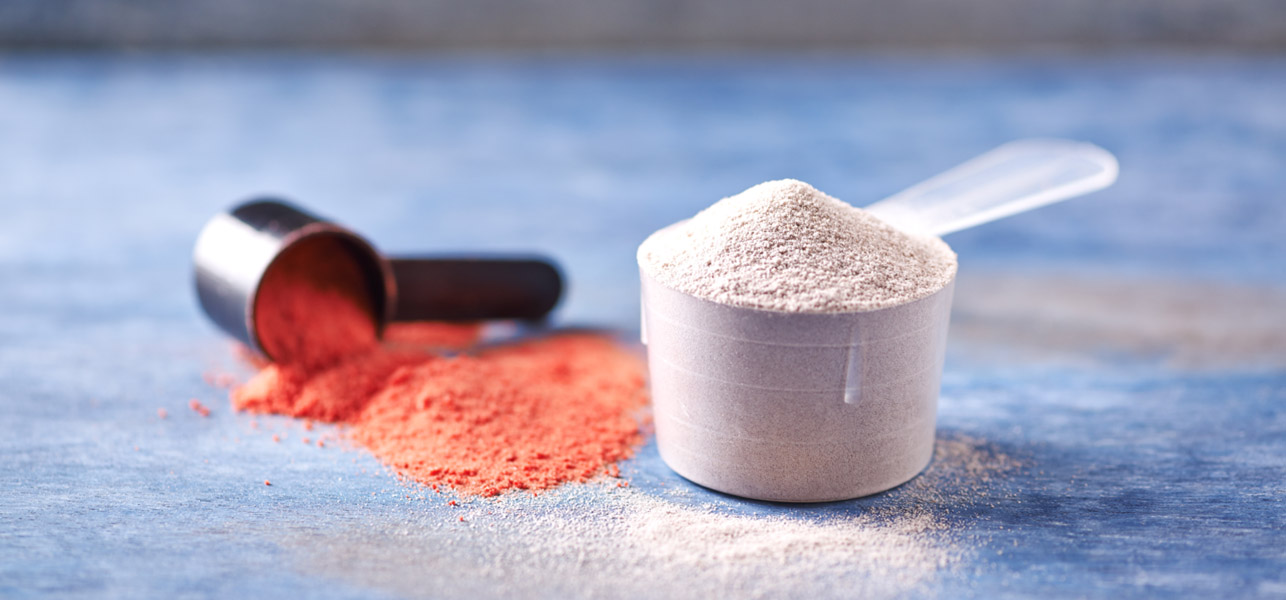Does Creatine Break a Fast? Revealing the Truth

Fasting while using creatine depends on certain factors. Your preferences and the goal of the fast affect your use of creatine. The additives in your creatine supplement brand of choice also play a vital role.
Creatine is a substance used to alter the body’s chemistry to produce more energy. It has some effects on your fast. But these effects may surprise you.
What Is Creatine?
Now, creatine is a chemical found in muscles. The bodies of all animals with muscles produce creatine, so it is present in red meat and fish.
Here are a few points to note about creatine:
- Creatine is integral to providing energy to your muscle cells.
- About 95% of it is present in the skeletal muscles, which are related to locomotion.
- As a result, most sports supplements contain creatine.
- Creatine is the most popular sport-enhancing supplement.
- Athletes use creatine supplements to improve exercise performance and muscle mass.
Creatine is one of many amino acids (2- [carbamimidoyl (methyl) amino] acetic acid) in the body. It is also found in the brain, kidneys, and liver.
Also, muscles store it as phosphocreatine. It helps break down ATP to produce energy.

Advertisement
Does Creatine Break a Fast?
Pure creatine will not break a fast. However, many supplement brands include additives to the creatine base for various reasons. Additives range from sugar to artificial sweeteners to flavors to milk solids. These additives may or may not have calories in them, and ingesting calories breaks your fast.
Furthermore, we must review the different objectives behind fasts.
In its basic form, fasting is abstaining from food and sometimes even water. It’s utilized for religious activities, dieting, and, more recently, athletic training and fitness.
People who engage in intermittent fasting have a fitness goal and take creatine. Religious fasting may not encourage the ingestion of anything at all.
In contrast, the point of a fast when it comes to fitness and exercise is to burn calories. Ingesting supplements like creatine could mean calorie intake because of additives and may result in breaking the fast.
Yet, creatine in its pure form does not have any calories. In fact, ingesting it will aid your burning of calories throughout the day. That’s what you want when you fast for fitness or weight loss.
Note that pure creatine cannot end your fast. But, if the calories in the additives compare significantly to those in your diet, your fast will not hold up. Say you consume a creatine-based supplement with added sugar, that may break your fast.
Fasting or breaking in your fitness regimen is all about calorie intake. So, taking creatine with additives included could break your fast. Calories trigger an insulin response from your body, taking it out of a fasted state and may affect any benefits that fasting was supplying.

What Are the Benefits of Creatine?
The main benefit of creatine is the most popular. It’s for athletes and people wanting to lose weight and build muscles.
Creatine is very helpful in dieting or fitness fast. You can go longer and harder with high-intensity activities, thus burning excess fat and improving your muscle condition. So, your blood sugar levels remain lower.
For example, taking creatine during a fast helps your muscles break down more ATP to produce energy. The result is you stay stronger for longer periods without food. Also, your body is automatically set to use up more sugars and fats to release energy for your activities.
Creatine supplementation during a fast makes your body burn more calories, which means more weight loss and greater muscle strength and growth.
Creatine prevents injuries and adverse physical conditions. These include muscle cramping, dehydration, muscle wear and tear, and fatigue. It also prevents injuries to bones, tendons, ligaments, and nerves. It is also great in aiding muscle repair by improving cell signaling.
Research suggests that creatine supplementation could improve cognitive performance, especially in old age.
It may have a positive impact on people with psychomotor problems. These include Alzheimer’s, Parkinson’s, Huntington’s disease, epilepsy, and many more.
Creatine supplements might prevent age-related declines in skeletal muscles and bone mineral density.
There isn’t enough evidence for using oral creatine in heart failure treatment. Yet, because of creatine’s use in enhancing muscle performance, it’s an option.
Some early research also suggested the use of some creams. For example, creams used daily for six weeks reduced skin sagging and wrinkles. The cream contained creatine and other ingredients.
It’s evident that creatine is a pretty versatile and significant supplement.
What Side Effects Can Creatine Cause?
Creatine is one of the most well-researched supplements. Studies on creatine lasting about four years have come short on adverse effects.
Furthermore, there is no scientific evidence that creatine affects the liver or kidneys. But, people with liver or kidney conditions should consult a medical professional before using it.
Some believe that creatine supplements may cause dehydration and cramps, but studies show that they actually help alleviate them – especially during endurance training under high heat.
But, you need to drink enough water on your fast since water has no calories too. Water will serve to keep creatine working properly in your body, keeping you fresh and energetic.
A 2009 study found that taking creatine supplements affects the increase of DHT. DHT is a hormone that can contribute to hair loss. Although it needs more research, people predisposed to hair loss should avoid creatine.
Creatine also causes weight gain through lean muscle mass. Yet, this is not considered a side effect as users desire this result.
Is It Normal to Use Creatine Supplements Every Day?
Generally, it’s okay to use creatine daily. Use it as directed by experts unless otherwise instructed by a doctor. It’s also beneficial to use it every time you fast.
It will benefit you to know that many people who use creatine start with a loading phase. This involves taking 20 grams a day for 5–7 days. They split it into 5-gram servings throughout the day. This leads to a rapid rise in the muscle stores of creatine.
Following the loading period, you may take 3–5 grams daily. This will keep creatine levels high in your muscles, and you can stick with this dosage for a long time.
You can improve absorption with carb- or protein-based meals. That’s because insulin gets released in the presence of such meals. But if you’re fasting, this won’t be the case. So, drink a lot of water instead.
Creatine pulls water into the muscles. So it is good practice to take it with a glass of water and keep hydrated throughout the day.
A Word From Our Expert
If you use creatine alongside intermittent fasting, your body will use up more calories a day. Creatine would keep breaking down the ATP in your muscle fibers, keeping you energetic throughout the day.
So, it’s essential to know these points about fasting with creatine:
- Check the side of the supplement bottle and pay attention to the part about calories. Many creatine supplements contain carbohydrates.
We’ve discussed supplementation already, but note these:
- If you haven’t used creatine for long or haven’t used it at all, start with a loading phase. This boosts creatine reserves in your muscles for 5–7 days.
- If you decide against the loading phase, you can take 3–5 grams of creatine daily instead. Maximizing your stores will take 3–4 weeks.
You will need to increase your protein and water consumption if you’re looking to bulk up. But when fasting, drink plenty of water. Fasting with creatine helps you shed excess calories and lose fatty weight.
Also, boosting your daily calorie intake should increase your daily exercise intensity. Creatine will help create energy, but you have to use up that energy.
Final Thoughts
We’ve discussed how creatine affects a fast. Pure creatine ingestion cannot break dieting or fitness fast. But, from a religious perspective, pure creatine is food, although it’s not. Instead, you could view it as medicine.
Creatine supplement additives could end your fast. That’s if they contribute a lot to the calories of your diet.







Comments (0)